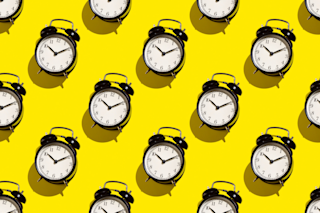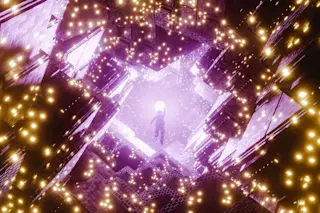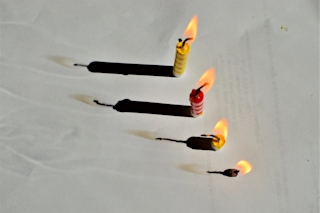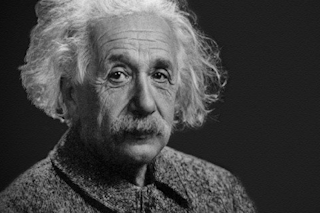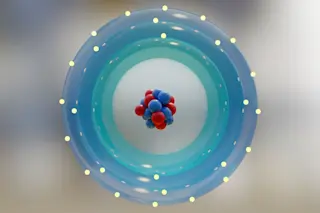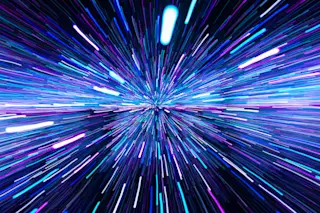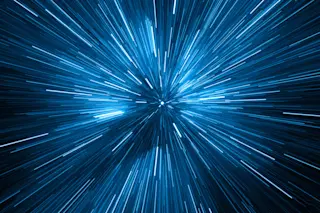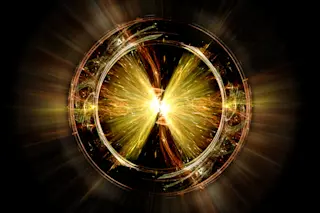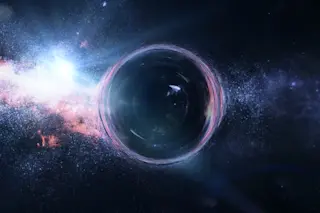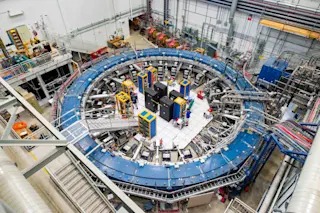I don't mean any disrespect when I say that the Higgs Boson is yesterday's news. In some ways, that is the very definition of what qualifies something for a Nobel Prize: a discovery that has already established its lasting importance and shown the way toward deeper insights. The foundational papers by Peter Higgs and Francois Englert, his Nobel-co winner, were published in 1964--nearly a half century ago. (Several other researchers also contributed to the work around this time, but are not recognized as part of this year's Nobel prize.)
Simulated particle event at the Large Hadron Collider shows a "supersymmetry event"--a long-sought indicator of fundamental physics unity. (Image courtesy of Matevz Tadel, UC San Diego/CMS) By the time researchers found strong evidence of the Higgs boson in 2012 at the Large Hadron Collider, or LHC, almost all physicists expected that it would be there; the shock would have been not ...


